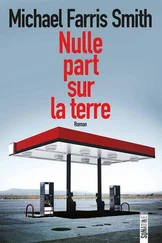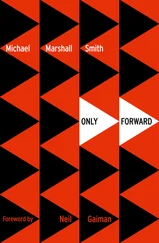‘You’re wrong,’ said Berthea. ‘I am not a reductionist in that way. If I were, I can assure you that I would not be a psychoanalyst. All I’m pointing out to you is that there are dissociative states of mind that can be mistaken for something else. A state of religious ecstasy might involve dissociation. Or even the state of mind that one is in when one is driving and suddenly realises that one has covered quite some distance and not really been aware of it.’
She realised that the motoring example might be a sensitive one. Did Terence drive, she wondered, while he was on a higher plane? Or did he come down from the higher plane before he started to drive, and then return to it later on? Either way, she was not sure whether she would be at all confident making any car journey with him other than the relatively direct one from the railway station to his house. That took them along quiet residential roads, where nobody would be held up by the Morris Traveller’s customary speed of twenty miles per hour or Terence’s habit of driving in the middle of the road.
Now, seated in Terence’s kitchen on Saturday morning, with the newspaper in front of her and a cup of coffee at her side, Berthea listened while Terence described his efforts to start the Morris Traveller.
‘Mr Marchbanks told me that he had put some petrol in,’ he said. ‘He had a can of petrol in his truck and he realised that I might have run out, so he put it in. But it still won’t start.’
Berthea frowned. ‘Does it make any noise at all?’
‘No,’ said Terence. ‘It’s as quiet as anything. Nothing happens. Nothing at all. It’s as if it’s in one of your dissociative states.’
‘Battery,’ said Berthea simply. ‘If nothing happens when you turn the key, it means that your battery’s dead.’
Terence digested this. ‘Dead?’
‘Well, batteries don’t necessarily die with such finality,’ said Berthea. ‘They have what I suppose you, Terence dear, might call a near-death experience.’
The metaphor was exactly what Terence needed to grasp the state of his battery. ‘Ah! I see. So a battery that has a near-death experience comes back? Its life isn’t entirely over?’
‘Precisely,’ said Berthea. ‘And what you can do is you can give the battery more . . . more life force.’
‘More electricity?’
‘Yes. You charge it, you see. You take electricity from the mains and you put it in the battery. Then the starter motor will - or may - work. I think perhaps that is what you should do.’
Terence nodded. He had seen where the battery of the Morris Traveller was, and although he was not sure how to remove it, he knew that he had a long extension cord in the garage. Mr Jones, the man who came to cut the lawn, used it to enable him to take the electric lawn mower to the far end of the garden. Now, if Terence simply removed the plug socket from the end of the extension cable he could then separate the two wires, strip them at the ends, and wind them round the terminals of the battery. Then he could turn on the switch at the wall and revitalise the battery in that way.
It seemed simple, and he decided that he would do it while Berthea finished reading her newspaper and drinking her coffee. She thought he was impractical - oh, he knew that, all right. Well, he would show her.
44. Don’t Try This at Home
Terence Moongrove left Berthea in the kitchen and made his way to the garage off to one side of the house. Mr Marchbanks, who had rescued Terence’s Morris Traveller, had pushed the car into the garage with its nose facing outward, pending some resolution of its mechanical plight. He had rescued Terence on many occasions before and knew the car well; indeed, he had fixed it several times over the last few months.
‘They make new cars, Mr Moongrove,’ he had observed to Terence the last time that the car had been in his garage. ‘Have you ever thought of getting something a bit more up to date? Not that I’ve got anything against Morris Travellers, of course. Just asking.’
Terence frowned. ‘But should we be rushing around replacing our cars all the time?’ he asked.
‘How long have you had this Morris?’
‘Oh, not all that long. Thirty years - something like that.’
Mr Marchbanks sighed. ‘I wouldn’t call it rushing around replacing a car if you got a new one now. Some people change their car every three years, you know. Alfie Bismarck down the road gets a new Jag every year. Regular as clockwork.’
Terence shook his head. He disapproved of Alfie Bismarck. ‘I would certainly not get a new Traveller every year,’ he said. ‘Out of the question.’
‘You couldn’t, Mr Moongrove. They don’t make Travellers any more.’
Terence expressed surprise. ‘But they’re such good cars,’ he said. ‘With this wood and everything.’
Mr Marchbanks explained that very few cars were made of wood now; only the Morgan, which had a chassis made of Belgian ash. But it was no use trying to talk to Terence Moongrove about Morgans, Mr Marchbanks thought: he was dangerous enough in a Morris Traveller and would be lethal in anything more powerful.
Now, as he stood in front of the static Morris Traveller, Terence wondered whether he should telephone Mr Marchbanks and ask for advice on how to charge the battery. He almost did, but in the end decided not to; he was looking forward to announcing to Berthea that he had fixed the car himself. He was fond of his sister but she tended to condescend to him, and he felt it was about time that it was brought home to her that there was something he could do.
He went inside the garage. He had seen Mr Jones hang the extension cable on a hook at the back. He was another one, he thought; he also believed that Terence Moongrove was incapable, in this case of looking after his own garden tools. Ever since that incident with the rake - which was not my fault, Terence muttered to himself - Mr Jones had stacked the tools away somewhere and wouldn’t tell him where they were. He had thought of inviting the gardener to join in the sacred dance, but was not going to do so now - not after the language he used. Such a person would certainly not fit in with the other adherents of paneurhythmy. What if somebody inadvertently trod on his toes and he said some of the things that Terence Moongrove had heard him say? Perhaps the Beings of Light would not understand the words and would therefore not be distressed; one could never tell.
The cable was where he had thought. Unhooking it, Terence examined the end and saw that there was a square plastic box attached to it. He knew what that was: those holes received the plug, obviously, but the whole thing could be taken off if one simply removed the screws. He made short work of it, using a screwdriver that had been left lying around by Mr Jones, or Mr Marchbanks, or possibly that boy from down the road who always seemed to be fiddling about in his garage.
It was now a simple enough business to strip off a small amount of outer cable covering and end up with a reasonable length of separated wires, one black and one red, it being an old-fashioned cable. Terence now plugged the other end of the cable into the mains. He knew exactly where the battery was, and how to open the bonnet of the car; he had watched Mr Marchbanks do this often enough and it took only a small amount of fumbling with the catch to reveal what he was looking for.
Terence remembered what his sister had said: the electricity from the mains would run into the battery and charge it. He was not sure how long this would take, but he would err on the side of caution and give it at least two minutes. That should do it.
He attached the black wire to one of the terminals and the red wire to the other. Then he surveyed his handiwork. It was quite an interesting business, he thought. Perhaps he could enrol for one of those courses that taught you home mechanics. That would mean that he would have to trouble Mr Marchbanks a bit less frequently. He could even have conversations with him about mechanical matters. He had heard Mr Marchbanks talking about big ends and he would be able to discuss them with him. Big ends were a problem, he knew, judging from Mr Marchbanks’s grave expression when he spoke of them, and there was obviously a lot to be said about them. But that could come later; for the moment there was the issue of the charging of the battery.
Читать дальше










